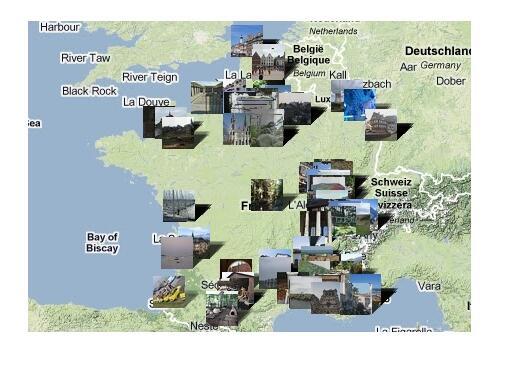French press review 5 April 2014
In headlines today in France: Manuel Valls, the country’s new prime minister, tests the waters with his cabinet. And, 20 years after the Rwandan genocide, the papers ponder France’s own role in the events that left up to 800,000 people dead.
Issued on: Modified:

France's ministers have been playing musical chairs all week and on Friday the music finally stopped. Leading daily Le Monde reports on Prime Minister Manuel Valls's first meeting with the reshuffled cabinet. Barely on his fourth day on the job, Valls is keen to put his foot down.

Just in case there were any doubts, Valls read out the article from the constitution reminding his flock that he is in charge.
Where his predecessor Jean-Marc Ayrault may have lacked in leadership, Le Monde says, Valls will be making up for fourfold.
The former PM was lambasted for his indecisiveness and back-pedalling, which were also seen as typical of President François Hollande's government as a whole.
Valls is cracking down on this bad image and the buzzword is efficiency. Last year, ministers held 1,500 meetings together – that’s up to six meetings a day and, according to Valls, quite a few too many.
Maybe that’s why some of the ministers titles are so long, Le Monde says. Like the new Minister for Women, Youth, the City and Sports, Najat Vallaud-Belkacem.
Does this mean Belkacem will be coaching young women from the ghettos in handball matches? Is this an attempt to streamline government? Or another sign that the ruling Socialists are at a loss on how to solve the country's problems? Le Monde wonders.
Though the French may have hailed the strong authority figure they see in Valls, conservative Le Figaro says the odds are against him. He has very little leeway.
France has missed all its deadlines on reducing its budget deficit and a meeting with Brussels on the country's public debt is looming large at the end of the month.

Moving away from France, left-leaning Libération and Catholic La Croix both dedicate spreads to the Rwandan genocide.
Libé looks at France’s controversial and relatively underreported role in the events leading up to the massacres in 1994. Namely, Paris’s implication in the plane crash that killed then president Juvenal Habyarimana and sparked ruthless killings throughout the country.
According to Libé, France was all too quick to blame the Tutsi-led RPF, the Rwandan Patriotic Front, for the plane crash. Investigations suggest that French intelligence knew about the attack. And Libé wonders if they may have in fact helped orchestrate it.
These are hefty allegations for a country that has since been accused of being a safe haven for Rwandan genocide perpetrators on the run.

It's vital for us to understand how the atrocities came about, especially in light of mounting mass violence in the Central African Republic, Libé warns.
La Croix is also trying to understand - not just the genocide, but also the 20 years since. How did these traumatic events play out on the every day lives of Rwandans? And what about their psychological health two decades down the line?
La Croix cites a study claiming that over half of the Rwandan population suffers from depression and reports on the work of NGOs targeting the psychological tolls for victims and victims' families.
The paper turns to the new post-94 generation now in their early 20s as a beacon of hope for healing the wounds of the past.
Daily newsletterReceive essential international news every morning
Subscribe